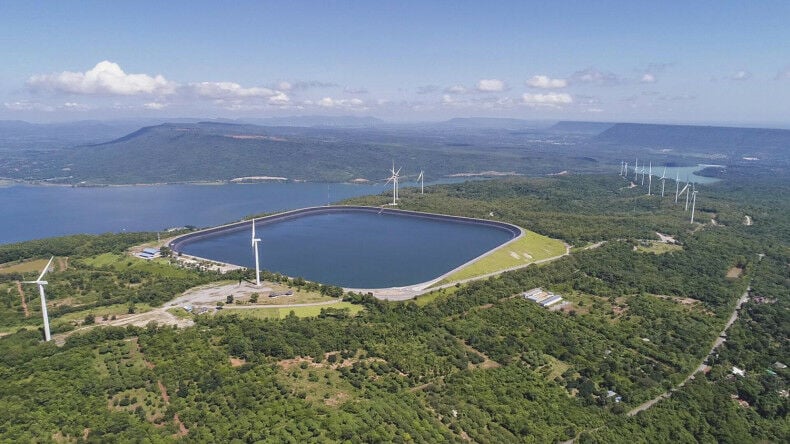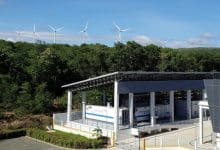Thailand powers up clean energy game with 3 new hydropower projects

Thailand is set to enhance its clean energy capacity with the development of three additional hydropower dams by the Electricity Generating Authority of Thailand (EGAT). These dams will function as substantial batteries, thanks to a 90-billion-baht (US$2.65 billion) investment aimed at bolstering the country’s electricity supply amid concerns about the intermittency of solar and wind power.
Egat is currently conducting a feasibility study to implement a pumped storage hydropower (PSH) system at these dams, according to Tawatchai Sumranwanich, EGAT deputy chief. This system involves two reservoirs located at different elevations, where water released from the upper reservoir generates electricity as it flows through a turbine. The water is then collected in the lower reservoir, from which it is pumped back to the upper reservoir to repeat the cycle.
The PSH system allows these dams to function like batteries, providing electricity on demand. During periods of low electricity demand, water is pumped back to the upper reservoir. Conversely, when electricity demand is high, water is released to generate power, said Tawatchai.
“This means we can produce clean electricity when the power supply from solar and wind farms drops. Power generation costs are also low, standing at 2 baht per kilowatt-hour.”
Solar and wind energy often face challenges due to their dependency on weather conditions, leading to an inconsistent power supply. The PSH system aims to mitigate this issue.
The three dams involved in the PSH project are the Chulabhorn dam in Chaiyaphum, with a generation capacity of 801 megawatts (MW), the Vajiralongkorn dam in Kanchanaburi with a capacity of 891MW, and the Kathun dam in Nakhon Si Thammarat, which can generate 780MW. These facilities are expected to begin commercial operations in 2034, 2036, and 2037, respectively.
Hydropower dams
Progress is being made in the study of the Chulabhorn dam, with officials having submitted an environmental impact assessment (EIA) report to the National Environmental Board, which received approval in April. Once the studies for all three dams are complete, the findings will be reviewed by the EGAT board and the Energy Ministry.
Approval will depend on whether the PSH technology aligns with the 2024 power development plan, which encourages the use of renewable energy, and whether it promises satisfactory returns. If these conditions are met, opinions from other state agencies will be sought before presenting the PSH project to the Cabinet for final approval, reported Bangkok Post.
Egat has already implemented PSH technology at the Lamtakong Jolabha Vadhana dam in Nakhon Ratchasima, which has a capacity of 1,000MW, showcasing the potential success of this technology in enhancing Thailand’s renewable energy infrastructure.
Latest Thailand News
Follow The Thaiger on Google News:


























